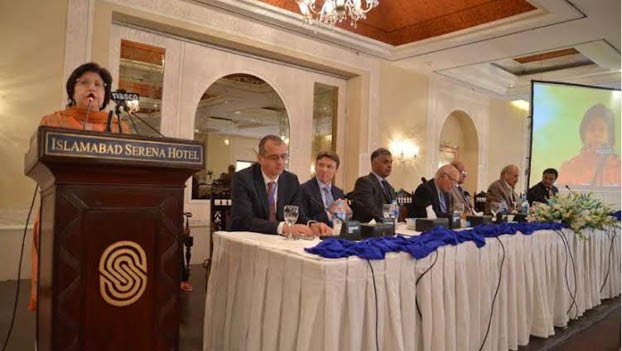
STAFF REPORT IBD: South Asian environment experts have said that the negative impacts of climate change in the region can be lessened only after developing a structured as well as collective approach through strategic environmental impact assessment. They emphasized to also take all stakeholders along in devising an effective policy to ensure environment protection which is costing especially Pakistan heavily.
The speakers were expressing these views at a two-day South Asian Environmental Assessment Conference (SAEAC13) recently held in Islamabad which was attended by a large number of experts and delegates from South Asian and other countries.
The conference, jointly organized by the Government of Pakistan and IUCN, also came up with a declaration calling for a shift from solely looking at Environmental Impact Assessments on individual projects to the idea of Strategic Environmental Assessment which builds environmental assessment into a nations policy and programmes.
The event was a major initiative of the National Impact Assessment Programme (NIAP) – a joint programme of the government of Pakistan and IUCN that aims to contribute to sustainable development in Pakistan by strengthening EIAs and introducing the concept of SEA into Pakistans development planning process. The programme is being funded by Embassy of Netherlands and technical assistance is being provided by the Netherlands Commission for Environmental Assessment (NCEA). SEA helps ensure that environmental considerations play a more effective role in policy development.
“Because the linkages between environmental, social and economic factors are better understood and addressed, policies, plans and programmes have a greater likelihood to contribute to sustainable development,” they elaborated.
Speaking at the inaugural ceremony, the chief guest, Sartaj Aziz, Adviser to the PM on National Security and Foreign Affairs, said, “The most important challenge is to strike a balance between rapid development and maintenance of environmental integrity while use of environmental impact assessment is one such important step.”
He said, “Pakistan took this step some 30 years ago by making it into a law. In addition, we are a party to many international treaties and conventions related to the environment. And for implementing these treaties and conventions, we have enacted appropriate legislations, and established and strengthened many institutions raging from basic research to applied technologies.”
Citing the Strategic Country Environmental Assessment Report of 2007, an expert said, “The estimated that environmental degradation is costing the Pakistans economy 6 per cent of the GDP or 365 billion rupees per annum – with greater likelihoods the figure has increased since then.”
Speaking on the occasion, Zahid Hamid, Minister for Science and Technology, underscored the need for focusing on climatic issues, and added, “This conference has ignited considerable interest in the subject of environmental assessment, and today we are reaffirming our pledge to work more strategically and more responsibly towards shaping our future development.” He said that one of the key objectives of the Conference was to create the right enabling conditions for cross-fertilization.
In his remarks, Mahmood Akhtar Cheema, Country Representative of IUCN Pakistan, said that Pakistan is early in introducing mandatory Environmental Impact Assessment at a national level, “and we hope that we will also be the ones with the support of the government to help introduce the Strategic Environmental Assessment at the policy level.”
South Asia is home to approximately 1.6 billion people most of whom live in diverse communities and are reliant on the environment and ecosystems for sustenance.